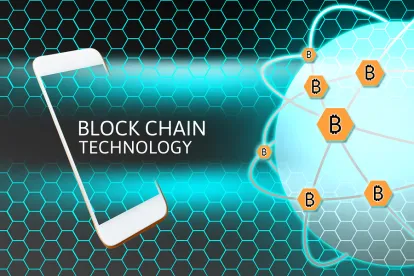There is a lot of buzz around blockchain technology and its potential to revolutionize a wide range of industries from finance and health care to real estate and supply chain management. Reports estimate that over $4.5 billion was invested in blockchain startups in 2017 alone, and many institutions and companies are forming partnerships to explore how blockchain ledgers and smart contracts can be deployed to manage and share data, create transactional efficiencies, and reduce costs.
While virtual currencies and blockchain technology in the financial services industry have been the subject of significant debate and discussion, blockchain applications that could transform the energy industry have received comparatively less attention.
NATIONAL RENEWABLE ENERGY LABORATORY TO TEST BLOCKCHAIN APPLICATIONS TO FACILITATE PEER-TO-PEER ENERGY TRADING
The national Renewable Energy Laboratory (“NREL”) announced recently that it has partnered with blockchain developer BlockCypher to demonstrate how blockchain can facilitate peer-to-peer energy transactions across blockchain platforms. According to a recent press release, NREL’s goal is to develop a blockchain-agnostic platform to facilitate distributed energy resources transactions and allow those transactions to be settled across multiple blockchain platforms and, where necessary, use a variety of cryptocurrencies.
NREL and BlockCypher plan to demonstrate the platform by conducting peer-to-peer energy transactions among test homes located in NREL’s Energy Systems Integration Facility. The transactions will be paid for and settled using the Dash networkcryptocurrency, which is being designed to accommodate voluminous [don’t like that word] transactions while maintaining low transaction costs. Following NREL and BlockCypher’s preliminary demonstration, the hope is to scale the platform to include multiple homes located on a utility feeder.
As we have noted in earlier issues, interoperability will be a critical part of blockchain development in 2018, and NREL’s and BlockCypher’s focus on developing a blockchain-agnostic application is a big step in that direction. Additionally, while the U.S. government has thus far lagged behind many of its foreign counterparts in testing peer-to-peer energy blockchain solutions, NREL’s announcement may foreshadow an increased focus by U.S. government agencies on testing blockchain applications in 2018.
BLOCKCHAIN PILOT PROJECT IN ESTONIA TO TEST LARGE SCALE TOKENIZATION OF ENERGY DATA ON THE BLOCKCHAIN
A new pilot program is being developed in Estoniato test the large-scale tokenization of energy consumption and production. The pilot, which was announced in a recent press release, is being developed through a collaboration between Elering AS (one of Estonia’s independent electricity and gas system operators) and WePower, a blockchain developer focusing on green energy trading solutions.
To develop the pilot, WePower plans to integrate its blockchain-powered energy trading platform into Elering’s existing data exchange platform. WePower will then generate and tokenize energy production data by leveraging Estonia’s existing advanced smart grid infrastructure, which (according to the press release) already boasts 100% smart meter coverage and allows for hourly monitoring of energy consumption and production. The hope is that the project will “enable energy innovation by removing market barriers” while also demonstrating the potential innovation in the energy sector “that can be unleashed by transparent data access.”
This pilot project is one of the first of its kind in Europe and demonstrates how existing smart infrastructure can be leveraged and augmented by using a blockchain network. Elering and WePower hope that it will serve as a model for future projects seeking to connect green energy producers to Estonia’s grid.
IOT DEVELOPER LAUNCHES FIRST ENERGY BLOCKCHAIN PILOT
Atonomi, the blockchain development arm of internet of things (“IoT”) security provider CENTRI Technology, recently announced that the blockchain-based renewable energy incentive platform developer Swytch will be the first company to run a pilot program on the Atonomi Network, which is a crypto-security protocol developed to enable “advanced trust and identity validation for IoT devices.”
Swytch is being developed as a means to verify and reward clean energy production, and the company aims to be a global platform that will monitor clean energy production and reward clean energy producers using a token. The goal is to incentivize clean energy production for projects ranging from large-scale industrial power infrastructure to small residential projects. As noted above, Swytch plans to use IoT devices to track energy use and production, and the Atonomi Network’s security features will provide the protection needed to maintain the IoT devices during this initiative.
As noted in earlier Blockchain Energizer issues, IoT devices will likely play a large roll in facilitating the wide-scale implementation and commercialization of blockchain technology, particularly with respect to energy industry applications. Additionally, although there are recognized cyber security risks accompanying increased IoT penetration, blockchain may offer at least a partial solution by providing enhanced data security.



 />i
/>i

